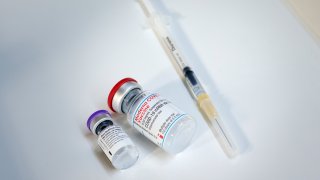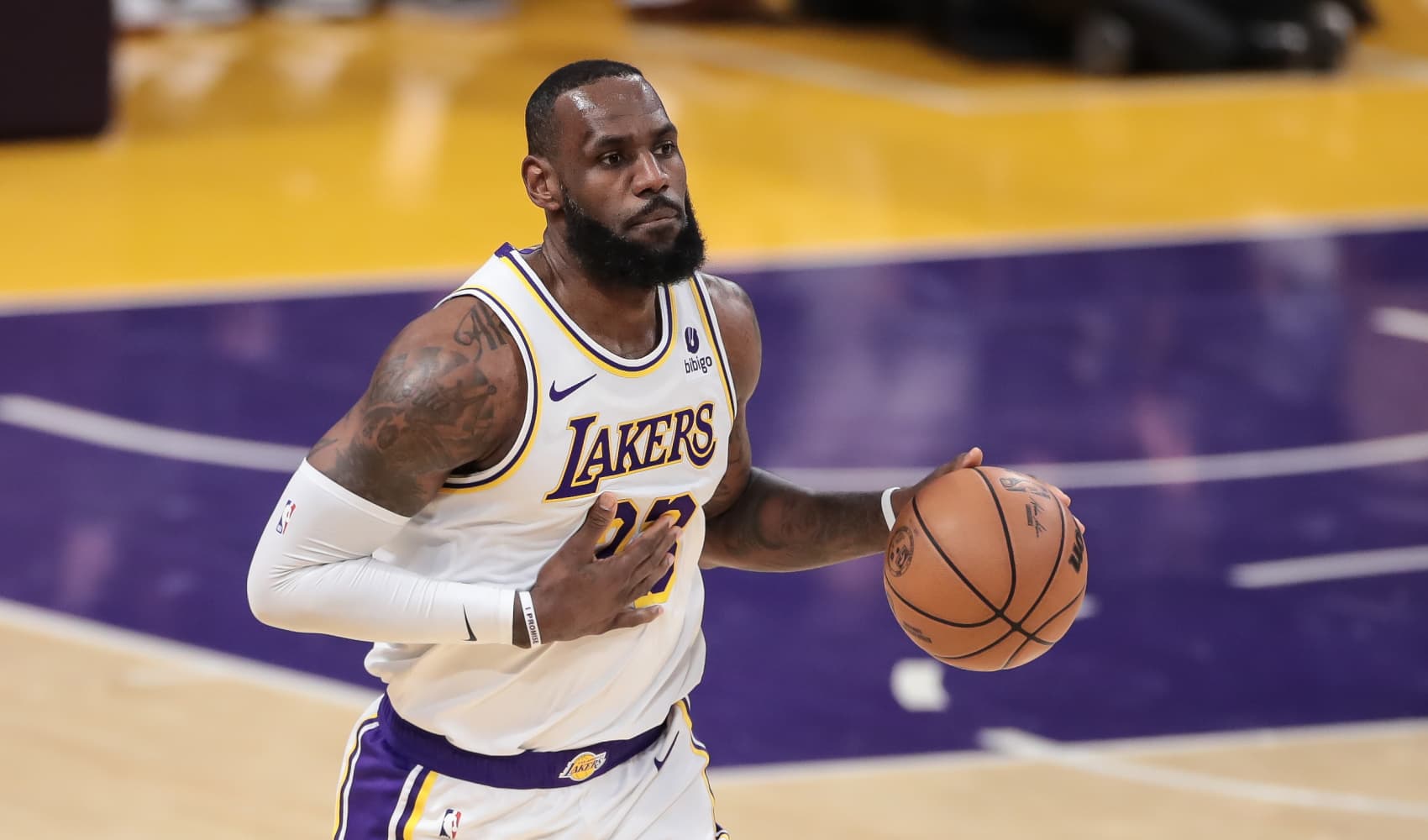
Americans have two options for a new omicron-specific Covid booster shot: Pfizer or Moderna. Which one should you get?
The short answer: It mostly depends on what you're eligible for.
Pfizer's booster is cleared for anyone 12 and older, while Moderna's booster is for people 18 and older. To get either one, you'll need to be at least two months removed from completing a primary vaccine series or receiving any other Covid shot.
Beyond those eligibility guidelines, the new boosters aren't that different from each other. Both shots are bivalent, meaning they target omicron's BA.4 and BA.5 subvariants alongside the original Covid strain.
Get Southern California news, weather forecasts and entertainment stories to your inbox. Sign up for NBC LA newsletters.
Federal health officials say both shots will serve as a desperately needed layer of protection for the coming months, as the weather turns colder and immunity from previous vaccines wanes. In other words, you can't go wrong with either.
But if you're still trying to decide which one to get, here's what you need to know — from mixing-and-matching and side effects to the makeup of the two new shots.
Do I need to stick with the same vaccine brand that I got before?
Money Report
No, the Centers for Disease Control and Prevention says.
"People ages 18 years and older may get a different product for a booster than they got for their primary series, as long as it is [Pfizer or Moderna,]" the CDC's website reads. People under age 18 would be able to mix-and-match if they could, but they're only currently eligible for Pfizer's shot.
Some studies suggest that mixing and matching vaccine brands for the older monovalent boosters, which are no longer in use, may have produced a higher number of antibodies. Equivalent studies on the omicron-specific boosters aren't published yet — but some experts say you'll be fine either way.
"It's OK to mix and match Moderna and Pfizer," Dr. Ralph Gonzales, associate dean for clinical innovation at UC San Francisco, said at a campus town hall earlier this month. "I just got my Moderna two days ago and it was an interesting experience. I definitely felt a stronger response with the Moderna — having had Pfizer before — but either combinations are fine."
Are the side effects any different?
Scientists are currently studying that question. Their results are expected to confirm that you'll probably get the same side effects — with the same levels of severity — from either shot.
In Pfizer and Moderna's clinical trials for earlier versions of bivalent boosters that targeted omicron's BA.1 and BA.2 subvariants, participants reported the same common side effects for each shot:
- pain, redness and/or swelling at the injection site
- fatigue
- headache
- muscle pain
- chills
- joint pain
In both clinical trials, most participants reported their side effects as very mild or even non-existent. Severe side effects are most commonly associated with second doses of vaccines, rather than third or fourth doses, U.S. Food and Drug Administration vaccine advisor Dr. Paul Offit told CNBC Make It earlier this month.
How different are the shots, scientifically speaking?
The two shots have very similar formulations and different dosage amounts.
Pfizer's updated booster shots contain 15 micrograms targeting the original Covid strain and another 15 targeting BA.4 and BA.5. That's the same size as a single dose of Pfizer's monovalent vaccine, which has 30 micrograms targeting the original strain.
Moderna's new shots contain a slightly higher dosage, with 25 micrograms targeting the original strain and another 25 targeting the omicron subvariants. That's the same total amount as a single dose of its 50 microgram monovalent vaccine.
Several studies indicate that Moderna's monovalent vaccine is slightly more effective than Pfizer's at producing a higher number of antibodies and offering more durable protection against infection and hospitalization. "Over time, that higher dose might be what is driving the difference in protective efficacy," John Moore, a microbiology and immunology professor at Weill Cornell Medicine, told The Atlantic last year.
The key word there is "might": Experts haven't yet found any direct connections between a vaccine's dosage amount and the level of protection you'll get. Health officials say the new shots will enhance your immunity at a crucial time, regardless of whether you get Pfizer or Moderna.
"We know respiratory viruses circulate at much higher levels in the fall and winter. It's a really good time to get yourself protected," Dr. Ashish Jha, the White House's Covid response coordinator, told the "In the Bubble with Andy Slavitt" podcast earlier this month. "And even if you yourself are on the low-risk side, you're going to have family and friends you're going to see. You don't want to be the person who gives it to your grandma."
Sign up now: Get smarter about your money and career with our weekly newsletter
Don't miss:
- ‘Should I get my omicron booster and flu shot at the same time?’ and other questions about fall vaccines, answered
- Get your omicron-specific Covid booster by Halloween, says Dr. Jha: 'You don't want to be that person who gives it to your grandma'
- Here are the side effects to expect from your omicron-specific Covid booster shot






